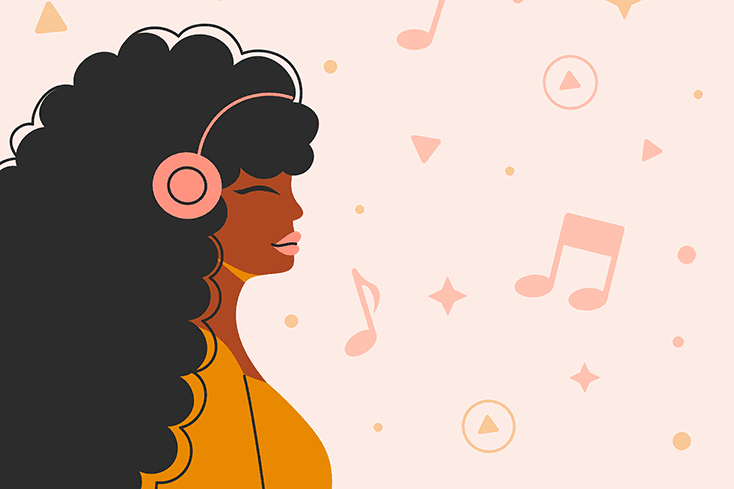July 22, 2022
By Anthony Pineda

While the existing models of mental health treatment are founded upon years of research and academic analysis of institutions and people across the world, certain groups of people have been left out of the dialogue — and, historically, they have never had a “place” in healing treatment. This is often rooted in a lack of trust in the system, cultural barriers left behind by old ideologies and racism in all its forms.
My academic research background and personal connection to hip-hop has allowed me to discover a new intersectional approach to helping people process trauma. After working in the mental health field for years, and witnessing the lack of cultural competence in our mental health care system, I have become even more committed to uncovering cultural approaches to healing. Specifically, I prioritize using hip-hop for a culture-based approach to healing and personal development.
I was left for dead, so to speak, during my adolescence. I experienced violence at home and dealt with parents' mental health issues, substance abuse and other traumas. Yet, in the darkness, I found a faint light: hip-hop.
Hip-hop music became my first therapist, my first teacher and my first purpose. When I listened to music, I felt a connection and was able to access my own feelings while beginning to process my trauma. Hearing my own story in the lyrics allowed me to acknowledge my wounds and feel a sense of community during a time of struggle and isolation.
Music provided a safe space to explore my thoughts, needs and emotions. It also provided an escape, a way out of my home, even while being at home. Music encouraged me to journal, which became an activity I needed daily and continue to this day.
As I entered the mental health space professionally, I witnessed how treatment lacked cultural competence, and I felt limited due to the one-size-fits all treatment model of: Come in, share your experience, identify areas for healing and feel better. This traditional model did not leave space for discussing culture, traditions or how identity operates in forming our sense of self. If a mental health professional had ever asked what music I listen to and why, it would have helped me reflect and understand myself better.
There are emerging modalities, like Acceptance Commitment Therapy (ACT), that bring a breath of fresh air to the field. As I learned how to apply ACT, I realized how important acceptance is for moving past mental obstacles. ACT offers another way to process, to reflect and to be. We often focus goals of treatment on progress, neglecting the fact that some traumas and behaviors will remain, and we need to be able to accept that some traumas linger in the mind and body.
After witnessing new techniques in ACT, I began to realize just how important it was to explore fresh perspectives and develop new methods. This got me thinking about how hip-hop music could be a pathway for healing techniques.
While working in the mental health field, I heard stories of trauma, which, in turn, connected me to my own traumas from the past. I began to feel the experiences of others in their words. While recording youth telling their stories, I could see them. I mean really “see them” — not just their behaviors or words, but the fullness of their experience. This challenged me to explore the sense of connection that I found in the lyrics in hip-hop music.
Hip-hop elements (DJing, MCing, graffiti or dance) provide multiple angles for development. I have taken the practice of rhyming and expression in order to tap into a person’s inner narrative, which, in turn, offers clients a direct line to their own mental health challenges. By doing this, I can help them reframe their inner narrative, which is a major tenant of mental health treatment. Within a 10-week period, we go through a variety of topics with a strong focus on social justice and mental health — not through a traditional academic approach, but one grounded in the experience of rhyming and expressing yourself. Ultimately, the program aims for clients to channel their own voices to heal. We use recording equipment to help with this final piece, which gives the clients agency over their own healing and the opportunity to hear the product of their words.
Without cultural context and a deep understanding, using hip-hop as a part of treatment could cause a disconnect. This means that practitioners using hip-hop culture, such as rapping, should study the culture beforehand to better prepare for a variety of outcomes, including a client being triggered by the content. With appropriate preparation and understanding, a practitioner can provide a safe space for processing.
It’s time to share what hip-hop is, a powerful path to develop and find purpose. Mental health needs something new, something intentional. It also needs something inclusive. Next time you are listening to your favorite track, reflect on what you’re hearing. What message is there? What potential can you find in the words? Perhaps if you listen well enough, you may just hear yourself in the stories that hip-hop shares with the world.
Anthony Pineda founded the Creatrix Institute with the vision of building community, promoting healing, integrating culture and giving people access to personal development. He spends his time in the education and mental health fields, providing programming celebrating hip-hop culture.
We’re always accepting submissions to the NAMI Blog! We feature the latest research, stories of recovery, ways to end stigma and strategies for living well with mental illness. Most importantly: We feature your voices.
LEARN MORENAMI HelpLine is available M-F, 10 a.m. – 10 p.m. ET. Call 800-950-6264,
text “NAMI” to 62640, or email. In a crisis, call or text 988 (24/7).